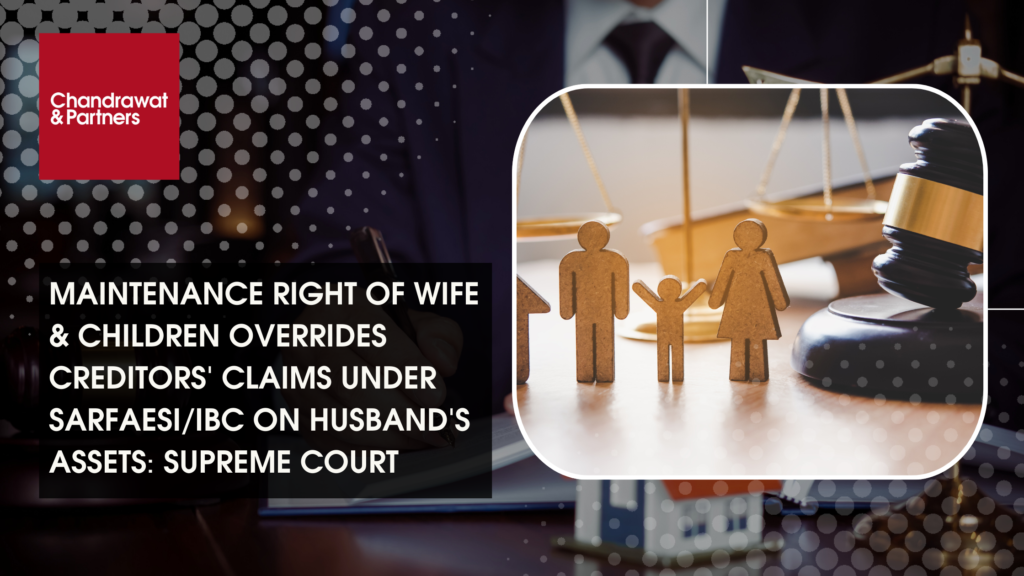Home > Recent Judgements > Maintenance Right Of Wife & Children Overrides Creditors’ Claims Under Sarfaesi/Ibc On Husband’s Assets: Supreme Court
DEC 20, 2024
BACKGROUND
In the case of Apurva @ Apurvo Bhuvanbabu Mandal v. Dolly & Ors., the original Family Court order awarded the wife (respondent) a monthly support payment of Rs.6,000/- and Rs.3,000/- for each child. The Gujarat High Court increased the maintenance payment to Rs.1 lakh per month for the wife and Rs.50,000/- per month for each child, considering the appellant’s financial capacity and ownership of a business. The High Court did not obtain income tax documents from the appellant, a diamond manufacturer, leading to a negative inference. After experiencing business difficulties and being unable to afford the increased maintenance, he ultimately submitted his income tax returns to the Supreme Court. In 2022, the Court established the temporary maintenance figures at Rs.50,000/ for the wife and Rs.25,000/ for each child, to be disbursed until the resolution of the case. The Securitisation and Reconstruction of Financial Assets and Enforcement of Security Interest (“SARFAESI”) Act and the Insolvency and Bankruptcy Code granted creditors the authority to assert claims on the appellant’s assets under applicable business laws.
KEY ISSUES
- Whether the wife’s and children’s right to maintenance takes precedence over statutory rights of secured and financial creditors in recovery proceedings?
- Whether the High Court’s enhancement of maintenance was justified given the appellant’s financial capacity?
- Whether the appellant’s immovable assets can be auctioned to recover arrears of maintenance?
JUDGEMENT
The Supreme Court ruled that the right to maintenance is an essential right, as it relates to the right to dignity under Article 21 of the Constitution. This right takes precedence over the creditor’s legal rights provided by business recovery legislation like SARFAESI and the Insolvency and Bankruptcy Code (“IBC”). The Court altered the High Court’s ruling, confirming a monthly maintenance payment of Rs.50,000/ for the wife and Rs.25,000/ for each child. The overdue amounts were to be calculated based on the increased rate determined by the High Court up until the date of its ruling. The maintenance debts were given priority in the liquidation of the appellant’s assets. The Court directed the Family Court to implement mandatory actions, such as selling real estate, to ensure the recovery of outstanding debts within three months.
OBSERVATION
The Court highlighted the judiciary’s responsibility in safeguarding the basic right to maintenance by instructing swift and strict recovery processes. Maintenance guarantees a dignified existence, which is essential to Article 21. Consequently, it supersedes the statutory rights of creditors in recovery processes. The temporary maintenance mandated by the Supreme Court was considered “equitable and just,” weighing the appellant’s assertion of financial hardship against the respondents’ necessity for support.
This pivotal ruling strengthens the superiority of dependents’ maintenance rights over creditors’ legal claims. The Court’s acknowledgment of maintenance as a fundamental right highlights its essential importance in preserving the dignity and support of dependents.
For more information or queries, please email us at
enquiries@chandrawatpartners.com





